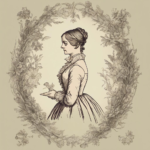In the year 2007, a groundbreaking film emerged that captured audiences with its compelling narrative and exceptional performances. “Persuasion,” directed by Adrian Shergold, remains a timeless classic that delves into the complexities of love, loss, and societal expectations. With its meticulously crafted storytelling and profound exploration of human emotions, this cinematic masterpiece continues to captivate viewers around the world. Join us as we delve into the nuances of “Persuasion” and uncover the timeless themes that resonate with audiences to this day.
Step Into the World of Cheryl Bolen
Dive into the enchanting stories of love, intrigue, and elegance set in the Regency Era. Cheryl Bolen's novels offer timeless romance and captivating tales that will leave you wanting more.
Explore Cheryl Bolen's Books Now
Overview of Persuasion Film 2007
The 2007 film adaptation of Jane Austen’s classic novel, Persuasion, brings to life the timeless story of love, second chances, and social class in 19th century England. Directed by Adrian Shergold and starring Sally Hawkins as Anne Elliot, the film captures the essence of Austen’s novel while adding its own unique flair.
Set against the backdrop of the Napoleonic Wars, Persuasion follows the story of Anne Elliot, a woman who is persuaded to break off her engagement to Captain Frederick Wentworth due to his lack of social status and wealth. Years later, they meet again, and Anne must confront her lingering feelings for Frederick as well as societal expectations.
The film beautifully showcases the complexities of love and relationships, the constraints of social norms, and the resilience of the human spirit. With stunning cinematography, a talented cast, and a faithful adaptation of Austen’s novel, Persuasion is a must-see for fans of period dramas and classic literature.
Key Themes and Symbolism in Persuasion Film 2007
In the 2007 film adaptation of Persuasion, the key themes of love, class, and societal expectations are expertly woven throughout the story. The film explores the idea of second chances and the possibility of rekindling a lost love, highlighting the enduring nature of true love despite external pressures.
Symbolism plays a significant role in conveying the emotions and struggles of the characters. For example, the sea serves as a powerful symbol of change and unpredictability, mirroring the tumultuous journey of the protagonist as she navigates the challenges of her past romance and societal norms.
Key Themes:
- Love and second chances
- Class and societal expectations
- Enduring nature of true love
Analysis of Character Development in Persuasion Film 2007
In the 2007 adaptation of “Persuasion,” directed by Adrian Shergold, the character development plays a crucial role in bringing Jane Austen’s classic novel to life on the big screen. Throughout the film, viewers witness the growth and transformation of Anne Elliot, the protagonist, as she navigates the complexities of love, regret, and societal expectations.
Key Points of Character Development in the Film:
- Anne Elliot: From the beginning of the film, Anne is portrayed as a reserved and dutiful woman who is haunted by past decisions. However, as the story unfolds, audiences see her gaining confidence and asserting her own desires, ultimately finding happiness and fulfillment.
- Captain Wentworth: The character of Captain Wentworth undergoes his own development as well, moving from initial resentment towards Anne to a deep understanding of her worth and a renewed love for her. His growth complements Anne’s own journey, creating a satisfying romantic arc for the audience.
- Side Characters: In addition to the main protagonists, the film also showcases the development of side characters such as the Musgrove sisters and Mr. Elliot. Each character undergoes their own challenges and transformations, adding depth and complexity to the overall narrative of ”Persuasion.”
By delving into the intricacies of each character’s journey, the 2007 adaptation of “Persuasion” not only captures the essence of Austen’s beloved novel but also offers a fresh perspective on the themes of love, loss, and redemption. Through skillful storytelling and nuanced performances, the film brings to life a world where every character, no matter how minor, plays a vital role in the tapestry of human emotions and relationships.
Recommendations for Viewing and Interpretation of Persuasion Film 2007
When watching and interpreting the 2007 adaptation of Persuasion, it is crucial to pay attention to the historical context in which Jane Austen wrote the original novel. Set in the early 19th century England, the film provides a glimpse into the societal norms and class structures of the Regency era. Understanding the constraints placed upon women, as well as the importance of social status and wealth, will enhance your viewing experience.
As you delve into the intricate relationships and character dynamics portrayed in the film, keep in mind the subtle nuances of Austen’s writing style. Notice the underlying themes of love, betrayal, and redemption woven throughout the story. Pay close attention to the dialogue and character interactions, as they hold clues to the characters’ true motivations and emotions.
For a more immersive interpretation of Persuasion, take note of the visual symbolism and cinematography utilized in the film. From the scenic landscapes to the costumes and set designs, every detail serves a purpose in conveying the themes and mood of the story. Make connections between the visual elements and the characters’ inner struggles and personal growth.
In Retrospect
the release of “Persuasion” in 2007 marked a pivotal moment in the realm of historical adaptations on the silver screen. With its compelling storytelling, nuanced characters, and evocative setting, this film captivated audiences and critics alike, solidifying its place as a timeless classic in the genre.
As we reflect on the impact and lasting legacy of “Persuasion”, we are reminded of the power of cinema to transport us to different worlds and eras, allowing us to experience the joys and struggles of the past in a new and profound way.
So let us continue to appreciate and celebrate the artistry and craftsmanship that went into creating this remarkable film, and may it serve as a reminder of the enduring power of persuasion in both storytelling and life itself.


